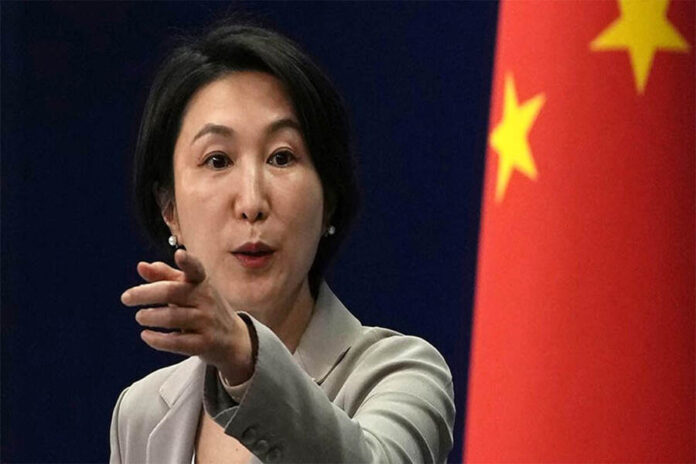On Friday, China announced that it has withdrawn its troops from four locations in eastern Ladakh, including the Galwan Valley. Chinese Foreign Ministry spokesperson Mao Ning stated that the situation on the India-China border is “generally stable and under control.”
This significant announcement came after a meeting held on the sidelines of the BRICS National Security Advisors’ summit in Russia, where both India and China agreed to work together to create favorable conditions to improve bilateral relations.
Mao added, “On September 12, Director Wang Yi met with India’s National Security Advisor Ajit Doval in St. Petersburg. Both sides discussed recent progress in consultations on border issues and agreed to implement the consensus reached by the leaders of both countries.”
He confirmed that the Chinese and Indian forces have achieved disengagement in four areas of their shared western border.
“In recent years, the frontline troops of both countries have realized disengagement in four areas… including the Galwan Valley. The situation on the China-India border is generally stable and under control,” Mao said. This announcement came shortly after Indian Foreign Minister S. Jaishankar remarked that around 75% of the “disengagement issues” with China had been resolved.
Speaking at an interactive session in Geneva on the India-China border conflict, Jaishankar stated that the June 2020 clashes in the Galwan Valley had affected overall India-China relations. He emphasized that it is impossible to separate the border violence from the broader bilateral relationship. “The talks are ongoing. We have made some progress. I can broadly say that about 75% of the disengagement issues have been resolved,” he said, according to PTI.
Diplomatic Efforts for Disengagement
Shortly after Jaishankar’s speech, NSA Doval met with Wang. The meeting occurred on the sidelines of the BRICS NSA summit in St. Petersburg, Russia.
According to a statement by the Ministry of External Affairs (MEA), the meeting allowed both sides to review recent efforts toward a prompt resolution of the remaining issues on the Line of Actual Control (LAC).
The MEA also noted that India and China agreed to work with “urgency” to achieve complete disengagement at the remaining friction points in eastern Ladakh and to “double” their efforts.
A Strained Relationship
Diplomatic ties between India and China deteriorated following the June 2020 border skirmishes, which resulted in the deaths of around 20 Indian soldiers in Ladakh’s Galwan Valley.
Since then, both nations have held more than 20 rounds of talks to restore peace and stability along the LAC.
Both sides have engaged in a series of diplomatic discussions, particularly after China issued a statement rejecting India’s establishment of the “so-called Arunachal Pradesh,” which it considers illegal. Beijing also renamed the region as “Zangnan.” In response, New Delhi dismissed this as a baseless move by China and stated that such actions do not change the ground reality.



